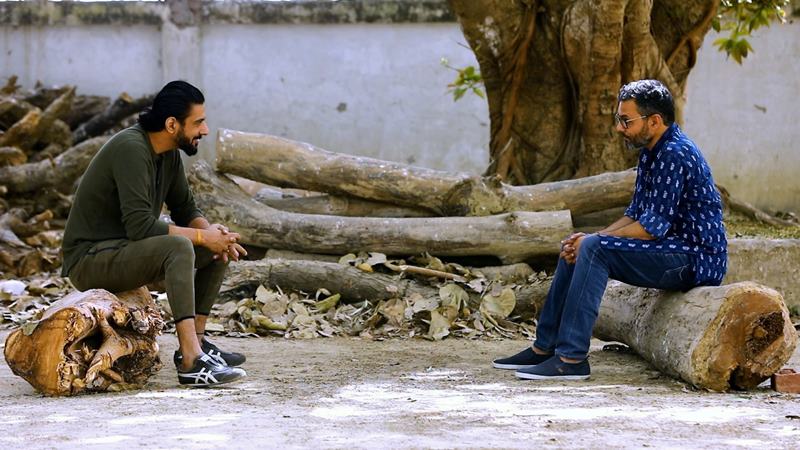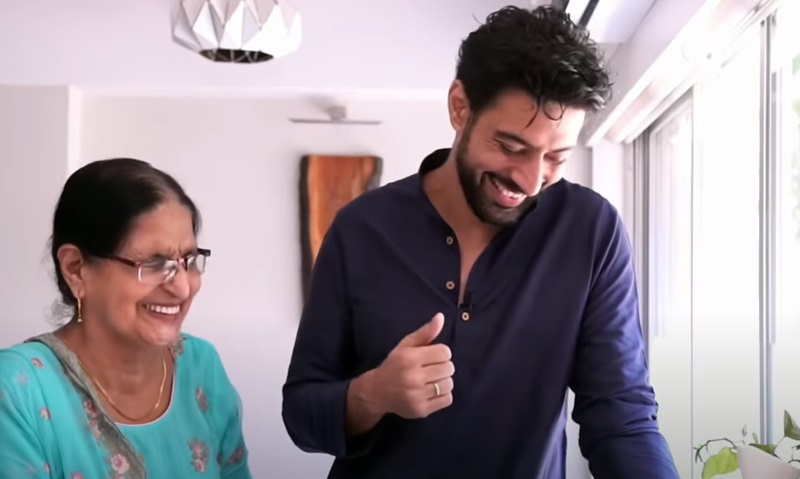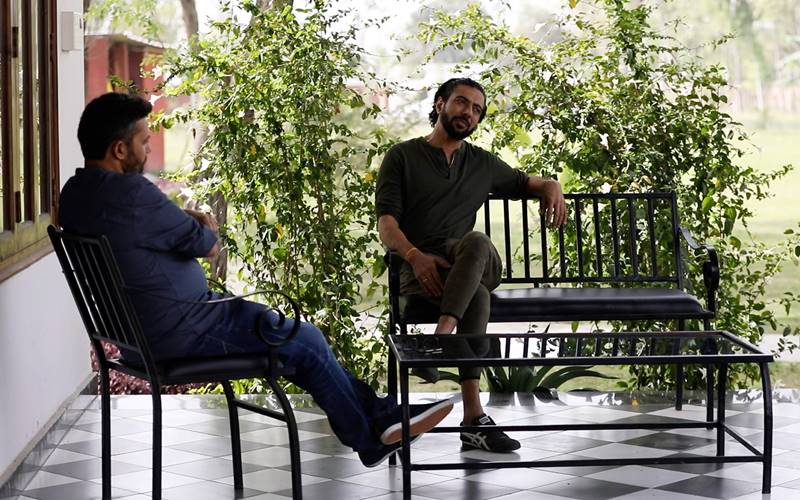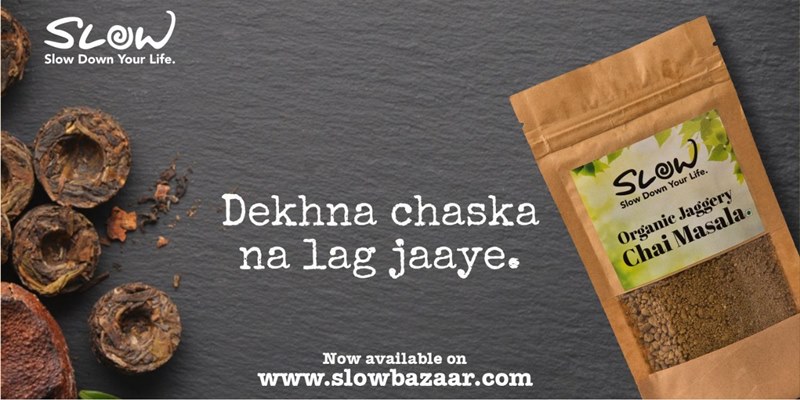The alu-jeera and dal-tadka philosophy of Ranveer Brar’s cooking
In The Slow Interview with Neelesh Misra, Ranveer Brar reinforces how the smells, sounds, sights and, of course, the taste of childhood are a big part of cooking for both home cooks or celebrity chefs like himself. He also believes that lessons learnt in the kitchen are life lessons.

For celebrity chef Ranveer Brar, who has cooked in kitchens across the world, opened restaurants, designed menus, served his dishes to heads-of-states, more than all of that, it is the ‘intangibles’ that make him so passionate about cooking and serving food.
In an unhurried conversation in The Slow Interview with Neelesh Misra, Brar tried to explain what those intangibles were. Perhaps the smell of ghee, milk and spices that followed his grandmother wherever she went. He has not forgotten how the precious spices were tied to the corner of her dupatta, jealously guarded, and not to be shared with the other womenfolk in the household! “But she taught me about respecting food,” he said.
The weekly bumpy ride to the gurudwara, perilously perched on his grandfather’s bicycle is perhaps the earliest of his memories, where food began to hover around his consciousness. “It was a Sunday ritual and I would travel with him to the gurudwara where I had to sit with him as he prayed or sang with his friends. I soon rebelled at the inactivity and my grandfather relented and said I could wait outside as long as I did not leave the compound,” he recalled.

Also Read: I came back to life and living in Varanasi: Vikas Khanna
Ranveer found himself a spot in the infinitely more interesting and ‘action-packed’ langar where big cooks with bigger voices joyfully cooked huge cauldrons of food. When the granthi’s wife, who made the sweet rice for the langar, went off on a break, the cooks turned to Ranveer and asked him to step in for her! “The meetha chawal [sweet rice] I made was good,” Brar said.
“Until then, I had not the slightest idea that I wanted to cook. Initially, my work in the langar gave me a negotiating tool with God. I would tell him, ‘Look I worked hard in your gurdwara, please ensure there is no power cut during the cricket match’,” Brar laughed.
Also Read: The Slow Interview with Suresh Raina: All about the moments that make a cricketer

Spice route
Then, it was Das Babu who deepened his fascination for cooking ingredients. Das Babu was the grocery store owner not far from Brar’s home in Lucknow. Brar would often be dispatched there to fetch ‘a little chilli’, ‘a little tea’, ‘a few grams of turmeric’… But, Das Babu would only hand over the groceries to the young lad if he waited and listened to his stories.
“He would tell me where the turmeric came from, or what was the speciality of the chilli, or where the tea leaves were grown, and so on. And if I heard him out, my reward was a toffee,” Brar laughed.
But he acknowledged that those conversations began his special relationship with spices.
Also Read: I am getting to know my mother, even more so, after her demise: Ali Fazal
Aloo-jeera and dal tadka test
We always leave a part of ourselves in the food we cook, Brar said. A cook’s relationship with food is immediately apparent with the dish he or she puts in front of you. So, what makes a good cook? Is it reproducing complicated menus using highly technical skills? Brar’s response to that question is an unequivocal NO.

He gave the metaphorical example of the ‘alu-hing-jeera and the dal tadka’. The ability of a cook to produce delicious food using the barest and most basic of ingredients is the real test. “When people come prepared to cook Michelin star dishes requiring complicated preparations, to impress me, I ask them to cook me alu hing jeera and dal tadka. Or make me tea,” Brar said.
Give identical ingredients to two cooks and the same dish each turns out tastes different. Brar said it is the response of each one to the ingredients that determines the taste. “There is nowhere to hide in such simple dishes. And, if you make a cracking alu jeera and a dal tadka, you are the best kind of chef,” he declared.
Also Read: Now, when I visit my village, I spend hours looking at the dewdrops: Pankaj Tripathi
Spiritual relationship with food
Food is an ever-evolving relationship, and the most important relationship in Brar’s life. And, he loves anything to do with food, especially its history and its evolution. He also believes that lessons learnt in the kitchen are life lessons. “They teach us about love, empathy, patience, making the best out of a bad situation, and so on…,” he said.
Emotions are expressed through food. Brar gave an oh-so-beautiful example. “I knew the father of a friend whose duty it was to cut mangoes after a meal. Sometimes, the gentleman would put an extra piece of mango on his wife’s plate… that was his way of saying ‘I love you’ or ‘I am sorry’. Those were times when public declarations of love were uncommon,” he laughed.

Slow Food
Brar believes the ecological and cultural respect for food has vanished. Everything is on a fast track. “Sometimes food needs to be left alone, to grow, to ripen, to get fit for eating in its own time. Not hurried,” he said. In our haste to make food grow faster, bigger and in greater quantities, the integrity and the purity of food is lost, he said.
As he cooked for Neelesh Misra at the latter’s farmhouse Slow, Brar drew comparisons between a journalist and a chef. Both have to be observant, good listeners and understand their audience. “Most of all it is imperative that they be good human beings,” he concluded, as he offered Misra a spoonful of the jackfruit preparation he had just made, to taste.
Also Read: “I am a simple man. I love buying potatoes and tomatoes,” says the real Manoj Bajpayee

